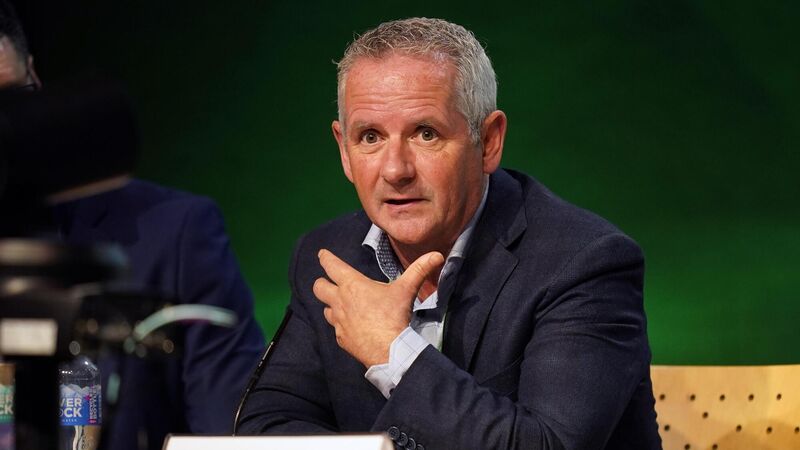Drug diversion model ready to go, but not being used, assembly hears

Chairperson Paul Reid speaking at The Citizens' Assembly on Drugs Use at Dublin Castle; the assembly was told that the Health Diversion Programme was agreed by government in 2019, on foot of recommendations of an expert group.
Ireland has its own drug diversion model ready to go, but it’s still awaiting people to be referred to it, the Department of Health’s top drug official has said.
Jim Walsh told this morning's Citizens’ Assembly on Drugs Use that the Health Diversion Programme was agreed by the Government in 2019, on foot of recommendations of an expert group.










